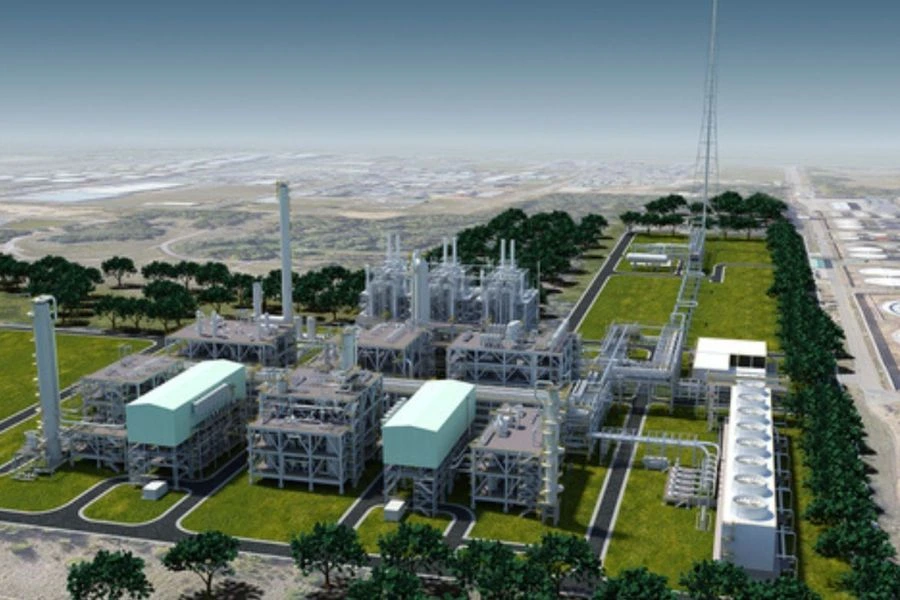
- Industry news
Industry news
- Category news
- Reports
- Key trends
- Multimedia
Multimedia
- Journal
- Events
- Suppliers
Suppliers
- Home
- Industry news
Industry news
- Category news
- Reports
- Key trends
- Multimedia
Multimedia
- Events
- Suppliers
Suppliers
Ineos faces new lawsuit over Project One as NGOs cite “alarming” plastic, emission and health risks
Key takeaways
- NGOs and ClientEarth have filed a new lawsuit against Ineos’s Project One plastics facility in Antwerp, alleging severe climate, health, and pollution risks linked to fracked gas and plastic production.
- The case is the first in Europe to challenge a petrochemical plant on Scope 3 emissions, including upstream fracking and downstream plastic waste impacts.
- Ineos defends the project as Europe’s most energy-efficient ethylene cracker, arguing that legal obstruction threatens the region’s industrial competitiveness and decarbonization goals.

NGOs and community groups have launched a new lawsuit against Ineos’s plastics facility in Antwerp, Belgium, and warn of fracking health issues, accelerated carbon emissions, and early deaths from pollution. We speak to Ineos and environmental charity ClientEarth to hear more about this latest lawsuit.
Project One, which is currently under construction, is an ethane cracker representing the largest investment in the European chemical sector in over 25 years. The plant will produce ethylene, a key chemical building block for industries such as packaging, automotive, building materials, and medical devices.
But while Ineos highlights Project One will be “one of the most energy-efficient and raw materials efficient olefin complexes in Europe,” the “lawyers, community members, and financial experts” filing the suit say the cracker’s projected harms are “alarming.”

ClientEarth lawyer Tatiana Luján, who is leading the case, tells Packaging Insights: “We know categorically that we need no more plastic-producing infrastructure globally. Yet right here in Europe, authorities are bending over backwards to enable the biggest plastics facility on the continent yet.”
“Project One has a shiny image, but its story is founded on fossil fuels. The gas supply chain is riddled with injustice and huge emissions, and this is currently flying under the radar. Meanwhile, experts have detailed a projected local impact that people in Belgium are not being made aware of.”
In response, Nathalie Meert, communications and external relations manager at Ineos, tells us: “We are deeply disappointed that these NGOs have once again chosen to pursue legal obstruction rather than open dialogue — despite our clear invitation to engage directly on their concerns.”
“This constant cycle of litigation undermines the very legal certainty Europe needs if it is serious about industrial renewal and decarbonization. It sends a stark warning to anyone thinking of investing in Europe: even world-leading, low-carbon projects are being dragged through the courts while high-carbon imports flood in unchecked from regions with far weaker environmental standards.”
Scope 3 emission concerns
ClientEarth says courts around the world have made major clarifications on the inclusion of Scope 3 emissions in Environmental Impact Assessments (EIA). “These are emissions that don’t happen on-site, but would not be locked in if the facility did not exist,” explains the environmental charity.
In the case of Project One, those would be the emissions from fracking and processing gas in the US to feed the plant, and the downstream emissions of incinerating eventual plastic waste, it continues.
 While NGOs are warning of negative environmental and health effects, Ineos says Project One will reestablish Europe's chemical industry. ClientEarth notes that the full extent of these emissions must be fully and accurately reflected in an EIA.
While NGOs are warning of negative environmental and health effects, Ineos says Project One will reestablish Europe's chemical industry. ClientEarth notes that the full extent of these emissions must be fully and accurately reflected in an EIA.
“Recent rulings on how authorities need to tally up the real impact of industrial developments change the prospects of this legal challenge. This is the first time a court will weigh in on Scope 3 and plastics. That makes it a crucial case,” says Luján.
US fracking impact
The environmental groups say the focus is now moving to the source of the gas that would be needed to power and feed the plant.
They claim Ineos ships much of the gas for its existing operations in Antwerp from the US, where fracking operations can take place on the doorstep of local communities. In Pennsylvania, for example, drilling can legally take place just 152 metres from private property.
Ineos has indicated in the EIA for Project One that it intends to use a selection of US suppliers to provide the plant’s fracked gas.
In October, communities from fracking hotspots in the US reportedly visited Belgium to present their case to politicians in Flanders and Brussels.
Fenceline Watch policy director Shiv Srivastava, based in Texas, says: “Communities that are along the Gulf Coast, including my community, in Houston, are impacted by companies that are based in the EU.”
“For too long, the industry has controlled the narrative on petrochemical production — it’s been about the global supply chain. It needs to be about the international people chain that connects all of us — our stories, our families, our environment, our safety, and our livelihood.”
“On top of that, any focus on trying to clean up the industry has centred on GHG. But discussion about decarbonisation, without talking about detoxification, is deception. To truly tackle the climate crisis and protect human health, we must confront the toxic chemicals at the heart of petrochemical production.”
Climate and health impacts predicted
The new reports, commissioned as evidence for the legal case, suggest that the potential global climate and health impacts of the plant have been “gravely underestimated,” and claim Ineos’ annual carbon emissions assessment fails to calculate full lifecycle emissions.
“Conservative estimates from an emissions study by Data Desk estimate that the full supply chain emissions footprint of Project One could reach 3.8 million metric tons of carbon emissions each year — the same as the annual emissions of the Democratic Republic of the Congo, and around five times higher than detailed in the EIA,” according to the reports.
The reports further estimate the overall regional air pollution impact of Project One, once operational, at 410 deaths attributable to emissions of toxic particles.
Other projected impacts include over 100 new cases of asthma in children and hospitalizations for respiratory and cardiovascular complaints.
Producing “in Europe, for Europe”
Project One promises to bring economic uplift to Europe’s crippling industry. Ineos recently shut down two of its production units in Germany, warning of “industrial suicide” as competitors in the US and China benefit from cheap energy, and European producers are being priced out by their own policies and absence of tariff protection.
“Europe cannot claim to lead on climate while driving its own manufacturing abroad and importing emissions from elsewhere,” says Meert.
“Ineos wants to produce in Europe, for Europe. We remain fully committed to delivering this project — the cleanest, most energy-efficient steam cracker in Europe, with carbon emissions less than half those of even the most efficient existing plants.”











